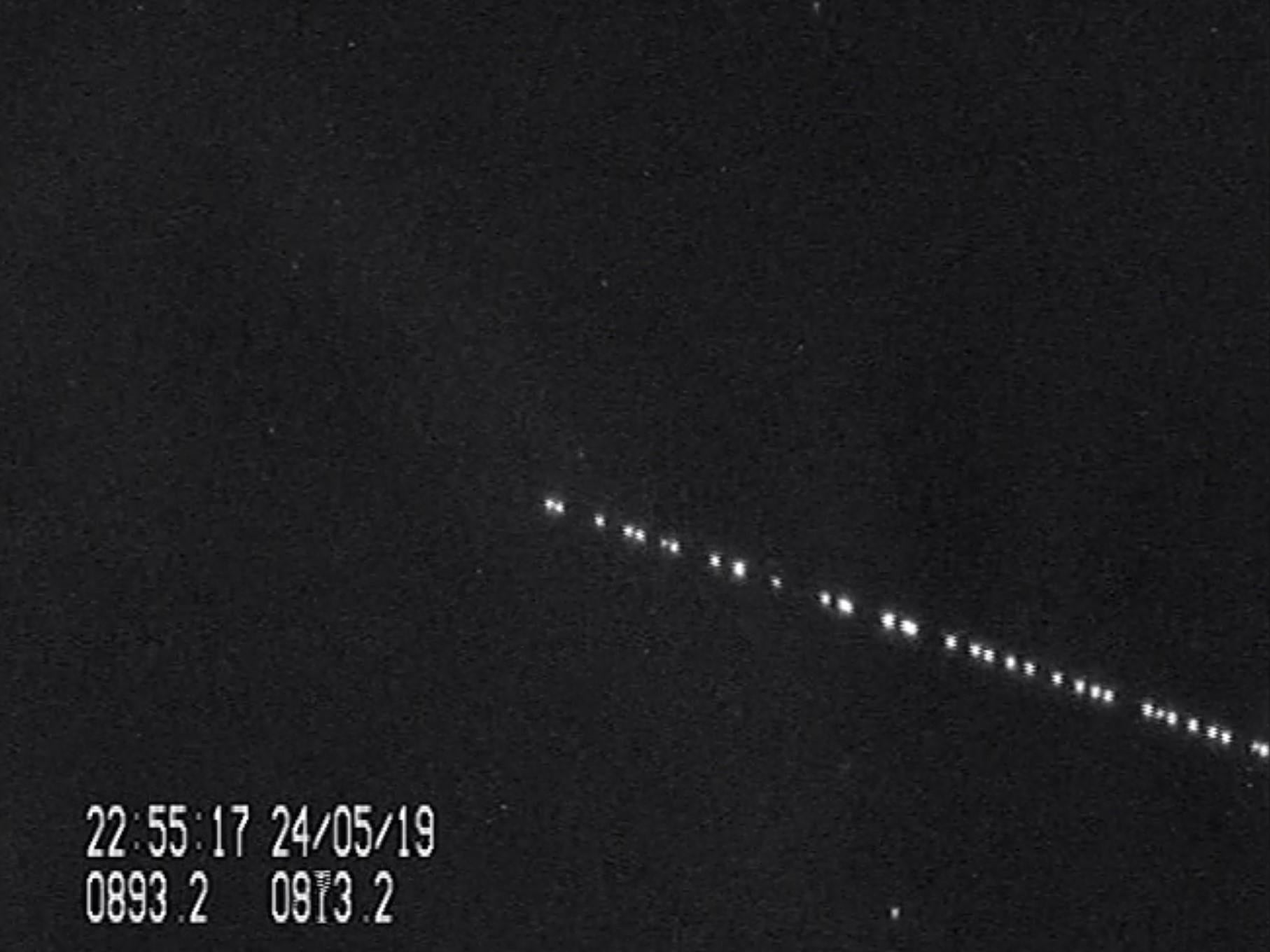The Independent's journalism is supported by our readers. When you purchase through links on our site, we may earn commission.
SpaceX plan for space internet threatens view of universe, astronomers warn
Observations of potentially dangerous asteroids could also be missed due to space clutter
Your support helps us to tell the story
From reproductive rights to climate change to Big Tech, The Independent is on the ground when the story is developing. Whether it's investigating the financials of Elon Musk's pro-Trump PAC or producing our latest documentary, 'The A Word', which shines a light on the American women fighting for reproductive rights, we know how important it is to parse out the facts from the messaging.
At such a critical moment in US history, we need reporters on the ground. Your donation allows us to keep sending journalists to speak to both sides of the story.
The Independent is trusted by Americans across the entire political spectrum. And unlike many other quality news outlets, we choose not to lock Americans out of our reporting and analysis with paywalls. We believe quality journalism should be available to everyone, paid for by those who can afford it.
Your support makes all the difference.Satellite launches planned by private companies like Amazon and SpaceX risk ruining the view of the night’s sky from Earth, astronomers have warned.
Thousands of micro satellites are set to launch in 2020 as part of plans to deliver universal internet access via constellations of low Earth orbit satellites.
Their presence could interrupt radio frequencies used for observing the universe, while also disrupting images from optical telescopes.
“These satellites are about the size of a table, but they’re very reflective, and their panels reflect lots of the sun’s light, which means that we can see them in images that we take with telescopes,” Dhara Patel, an astronomer at the Royal Observatory Greenwich, told the BBC.
“These satellites are also big radio wave users ... and that means they can interfere with the signals that astronomers are using.”
Dr Dave Clements, an astrophysicist from Imperial College London, described the constellations as a “tragedy” that could prove dangerous if they block observations of Earth-bound asteroids.
“They present a foreground between what we’re observing from the Earth and the rest of the universe, so they get in the way of everything,” he said. “And you’ll miss whatever is behind them, whether that’s a nearby potentially hazardous asteroid or the most distant Quasar in the universe.”
Others have played down concerns about the impact the satellites will have, with Olivier Hainaut, an astronomer at the European Southern Observatory (ESO) in Germany, saying it would only affect around 0.8 per cent of their telescopes’ observations.
“We are pretty sure it won’t be a problem for us,” he told Nature earlier this year.
One of the most ambitious plans for a space-based internet is the Starlink project by Elon Musk’s SpaceX, which launched the first 60 satellites of a proposed 12,000-strong satellite network earlier this year.

Shortly after they were released into orbit, their trail prompted more than 100 UFO reports to the Dutch website UFO Meldpunt, though SpaceX said its Starlink satellites would only be visible with the naked eye for their first few orbits of the Earth.
The firm told The Independent that it was proactively coordinating with the European radio astronomy community and the US National Radio Astronomy Observatory (NRAO) in order to protect critical radio astronomy activities.
SpaceX also said it was “taking steps to make the base of Starlink satellites black to help mitigate impacts on the astronomy community”.
Other companies planning to launch major constellations include Amazon and UK start-up OneWeb, who between them hope to introduce more than 5,000 satellites into orbit.

Join our commenting forum
Join thought-provoking conversations, follow other Independent readers and see their replies
Comments